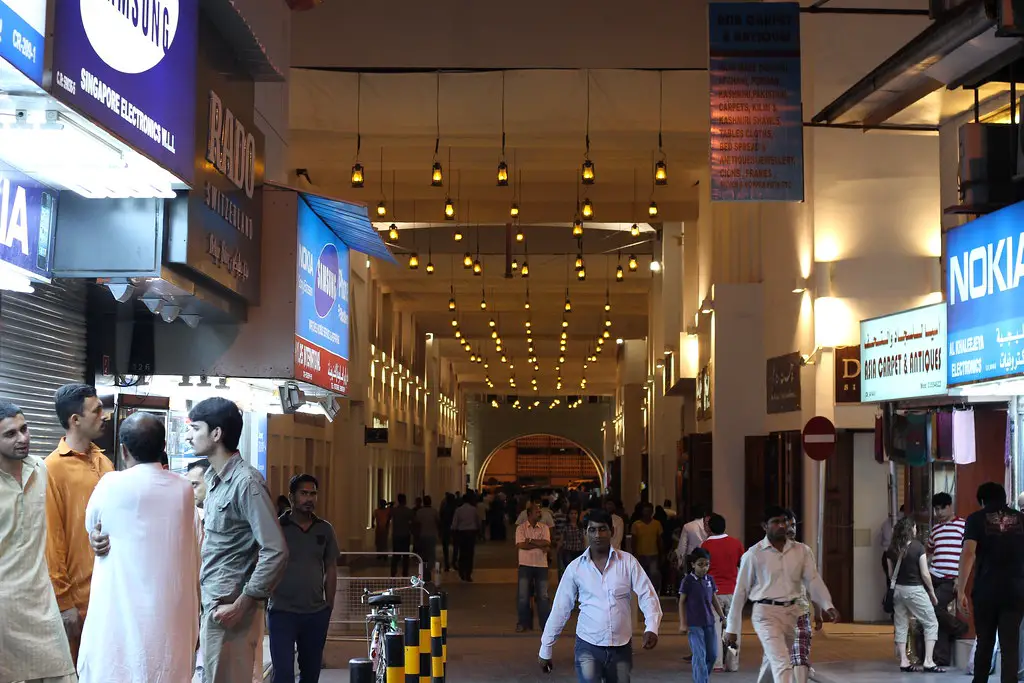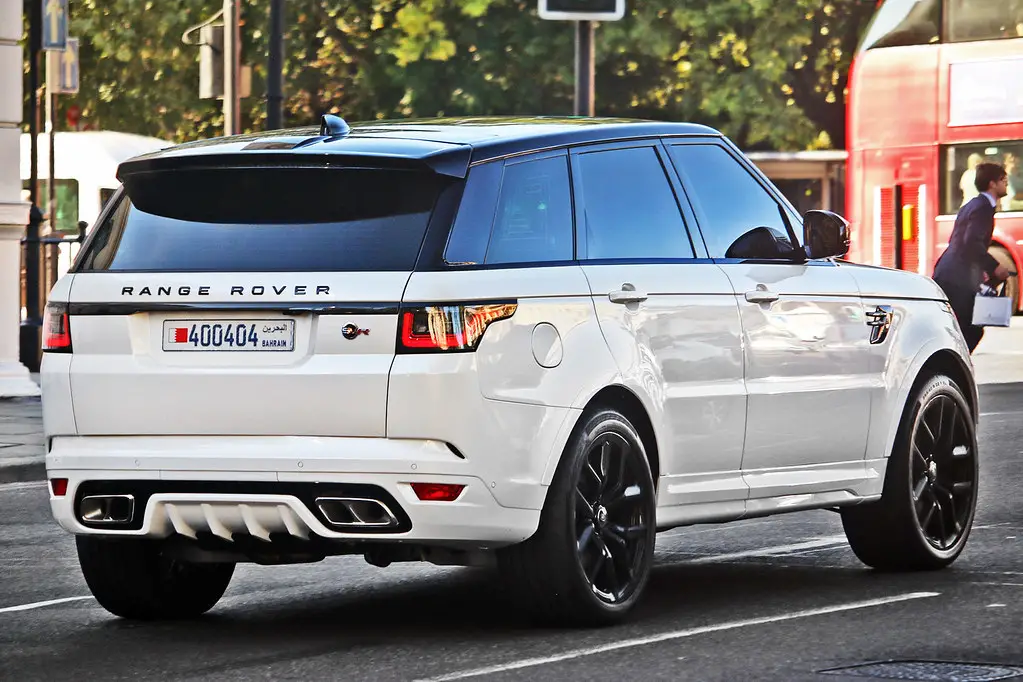Bahrain is a small island nation in the Persian Gulf known for its rich history, warm hospitality, and modern infrastructure. If you’re planning to move to Bahrain or visit the country for the first time, you might be wondering what to expect in your first 30 days. This period can be both exciting and challenging as you navigate a new culture, climate, and way of life.
In this article, we’ll give you a brief overview of what to expect in the first 30 days in Bahrain, from accommodation options to cultural norms and things to do. Whether you’re coming to Bahrain for work, study, or leisure, this guide will help you settle in quickly and make the most of your time in this vibrant country.

Why Travel to Bahrain
Bahrain is a small island nation in the Persian Gulf that offers a unique blend of rich history, modern amenities, and warm hospitality. Here are some reasons why you should consider traveling to Bahrain:
- Rich cultural heritage: Bahrain has a fascinating history dating back to 2000 BC and is home to several ancient sites, including the Bahrain Fort and Qal’at al-Bahrain. The country also has a vibrant arts and music scene that celebrates its cultural heritage.
- Modern infrastructure: Despite its small size, Bahrain has a well-developed infrastructure that includes modern airports, highways, and public transportation systems. The country is also home to several luxury hotels, shopping malls, and entertainment venues.
- Warm hospitality: Bahrainis are known for their warm and friendly nature and are always eager to welcome visitors to their country. You’ll find that the locals are hospitable and welcoming, making your trip even more enjoyable.
- Beautiful beaches: Bahrain is home to several beautiful beaches, including Al Jazayer Beach and Marassi Beach. These beaches offer crystal clear waters, white sand, and plenty of opportunities for water sports and other activities.
- Delicious cuisine: Bahrain is known for its delicious cuisine, which is a blend of Arabic, Persian, and Indian flavors. You’ll find plenty of restaurants serving traditional Bahraini dishes, as well as international cuisine.
Respect for Religion

Bahrain is a country that deeply respects Islamic religious values, and visitors are expected to adhere to certain cultural norms and practices. Here are some important things to know about Bahrain’s religious and cultural practices:
- Respect for Islamic religious values: Showing disrespect towards Islamic religious beliefs and practices is considered deeply offensive and can result in heavy fines and imprisonment. Visitors are advised to be mindful of their behavior and dress appropriately when visiting mosques and other religious sites.
- Traditional dress for women: Women in Bahrain traditionally wear an abaya, a long black gown that covers the arms and falls to the floor. They also wear a hijab, a scarf that covers their hair. For special events, women wear brightly colored dresses called jalabiyas with intricate embroidery. Women are expected to dress modestly, avoiding revealing clothing and shorts.
- Traditional dress for men: Men in Bahrain traditionally wear a thobe, a long white dress-like piece of clothing that covers the arms, legs, and neck. They also wear a ghitraa, a white or red and white scarf with a black rope placed on top.
- Ramadan: During the holy month of Ramadan, Muslims fast from sunrise to sunset and refrain from food, drink, gum chewing, tobacco use, and intimacy. Visitors are expected to be respectful of this practice and avoid eating, drinking, or smoking in public during daylight hours.
- Iftar: Every evening during Ramadan, Muslims celebrate the breaking of their fast with an evening meal called iftar. Visitors are welcome to join in these celebrations and experience the rich traditions of Bahraini culture.
Overall, visitors to Bahrain are encouraged to be respectful of the country’s Islamic religious values and cultural practices. By following these guidelines, visitors can ensure a smooth and enjoyable trip to this beautiful island nation.
Price Guide

Accommodation: The monthly rent for a 1-bedroom apartment in a good area in the city center is around BHD 324.79 (USD 861.40). If you’re willing to live outside the center, the monthly rent for the same size apartment drops to around BHD 226.02 (USD 601.20). For a larger 3-bedroom apartment, you can expect to pay around BHD 670.39 (USD 1,778.90) in the city center and BHD 448.72 (USD 1,189.10) outside the center.
Groceries: The cost of groceries in Bahrain is relatively affordable. A liter of milk costs around BHD 0.62 (USD 1.64), a loaf of fresh white bread costs around BHD 0.41 (USD 1.09), and a dozen eggs cost around BHD 1.00 (USD 2.65). If you’re looking to buy chicken breasts (boneless, skinless), expect to pay around BHD 2.18 (USD 5.80) per kilogram.
Utilities: The cost of utilities in Bahrain varies depending on your usage. The average cost of electricity and water per person is around BHD 38.15 (USD 101.30) per month. If you’re looking for internet with TV and landline, expect to pay around BHD 14.97 (USD 39.80) per month. Mobile call rates are around BHD 0.05 (USD 0.13) per minute.
Eating out: Bahrain offers a wide range of dining options to suit any budget. A three-course meal in a mid-range restaurant will cost around BHD 15 (USD 39), while a meal at McDonald’s costs around BHD 2.20 (USD 5.80). If you’re in the mood for a cappuccino, expect to pay around BHD 1.73 (USD 4.60). If you want to have a beer, it will cost around BHD 1.33 (USD 3.50).
Transportation: Taxis are a convenient way to get around Bahrain, but they can be relatively expensive. The typical taxi rate is around BHD 2 (USD 5.30). If you’re looking to save money, consider taking the bus instead. A single bus fare costs around BHD 0.30 (USD 0.80). Petrol costs around BHD 0.18 (USD 0.48) per liter.
Overall, Bahrain offers a relatively affordable cost of living compared to other Gulf countries. By budgeting wisely and taking advantage of cheaper options, you can make the most of your time in this beautiful country.
Getting a Driver’s License

Requirements: In order to obtain a driver’s license in Bahrain, you must have a GCC or an International Driving License. You must have resided in Bahrain for at least three months and be over 18 years of age.
You will also need to pass an eyesight test. Additionally, you will need to undergo a driving test based on the license of your home country, or undertake instruction classes before appearing for the driving test.
Driving lessons: You can undertake driving lessons at driving schools by paying an hourly fee. You will need to possess an International Driving Permit, which must be endorsed by the Directorate before use.
You will also need to possess a Bahraini ID card prior to applying for a driving license. The temporary learning driving license will be valid for one year from the date of issue.
You can renew it for the same duration prior to its expiry date by paying the required fees for renewal.
Rules of the road: It’s important to follow the essential rules of the road while driving in Bahrain. Driving is on the right-hand side of the road, and seatbelts are compulsory. Road signs are in both Arabic and English, making them easy to follow.
The speed limit on inner city roads should be between 50kph and 80kph, and 80kph to 100kph on highways. Over-speeding or crossing a red light can lead to court cases or fines. Drinking and driving is a serious offense that could lead to imprisonment or a fine.
Overall, obtaining a driver’s license in Bahrain is a relatively straightforward process, as long as you meet the necessary requirements and follow the rules of the road. By obtaining a valid driver’s license, you can enjoy the freedom and convenience of driving in Bahrain.
Traffic Violations (Fines between BHD 20 – BHD 100)
- Allowing a child below 10 years old to sit in the front seat: It is not safe for a child below the age of 10 to sit in the front seat of a vehicle due to the risk of injury from airbags. In many countries, it is against the law to allow a child under a certain age to sit in the front seat.
- Allowing an infant in the vehicle without a child seat: Infants and young children should always be secured in a child seat when traveling in a vehicle. Failure to use a child seat can result in serious injury or death in the event of an accident.
- Allowing passengers in the outer part of the vehicle: It is dangerous to allow passengers to sit outside of the vehicle while it is moving. This can result in serious injury or death if the passenger falls off or is hit by another vehicle.
- Causing damage to a traffic sign: Traffic signs are essential for road safety and are put in place to guide drivers and pedestrians. Deliberately causing damage to a traffic sign can lead to fines and penalties.
- Causing damage to property (public or private): Causing damage to public or private property is illegal and can result in fines, imprisonment, or both.
- Displaying information that violates ethics and public order: Displaying offensive or inappropriate information on a vehicle can be against the law and may result in fines or legal action.
- Driving fast in a residential area: Driving at high speeds in a residential area is dangerous and can put pedestrians and other drivers at risk. It can also result in fines and penalties.
- Driving without lights: Driving without lights is dangerous, especially at night or in low-light conditions. It can result in accidents and fines.
- Driving on the wrong side of the road: Driving on the wrong side of the road is dangerous and illegal. It can result in accidents and fines.
- Expired registration certificate: Vehicles must have a valid registration certificate to be legally driven on the road. Driving with an expired registration certificate can result in fines and penalties.
- Loading or unloading on unpermitted roads or times: Loading or unloading goods on roads that are not designated for this purpose or during times when it is not permitted can result in fines and penalties.
- Not giving way to emergency vehicles or official convoys: It is important to give way to emergency vehicles and official convoys to ensure their safe and timely passage. Failure to do so can result in fines and penalties.
- Not informing about transferring the ownership of a vehicle: It is important to inform the relevant authorities when transferring ownership of a vehicle. Failure to do so can result in fines and legal action.
- Not using a seat-belt: It is important to wear a seat-belt when driving or riding in a vehicle. Failure to do so can result in fines and penalties.
- Not wearing a helmet: It is important to wear a helmet when riding a motorcycle or bicycle. Failure to do so can result in fines and penalties.
- Parking a truck, heavy vehicle, or public transport vehicle in a residential area: Parking heavy vehicles in residential areas can cause congestion and safety hazards. It can also result in fines and penalties.
- Reckless driving: Reckless driving is dangerous and can result in accidents, injuries, and even death. It can also result in fines and legal action.
- Using elevated headlights: Using elevated headlights can blind other drivers and cause accidents. It is illegal in many countries and can result in fines and penalties.
- Stopping in a darkened place at night without turning lights on: Stopping in a dark place at night without turning on the vehicle’s lights can cause accidents and result in fines and penalties.
Summary
In conclusion, Bahrain is a welcoming and dynamic country that offers a unique cultural experience for visitors and expats. The first 30 days in Bahrain can be a mix of excitement and adjustment, but with the right preparation and mindset, it can also be a time of exploration and discovery.
By understanding the accommodation options, cultural norms, and things to do, you can make the most of your time in Bahrain and enjoy everything this beautiful country has to offer.
READ NEXT: Guide to Working in Bahrain